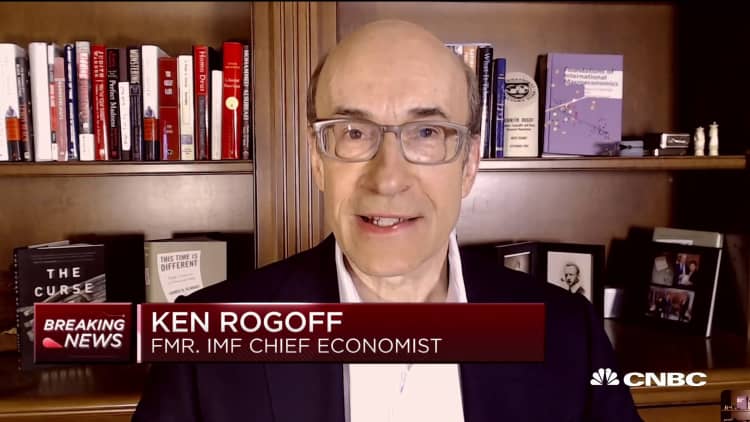
Kenneth Rogoff, former chief economist at the International Monetary Fund, said the coronavirus pandemic will be a major blow to the economies of developing countries regardless of how quickly the U.S. and Europe recover.
"They're trying to contain the aftermath, the financial crisis. But emerging markets I think are certainly going to get cut to their knees already, and it's just hard to know until when we know when we're getting out of it how bad it's going to be in the advanced countries," Rogoff said on "Closing Bell."
The countries with the highest number of confirmed cases of the coronavirus are the United States and several Western European countries, including Italy and Spain. The shutdowns of businesses across the U.S. have fueled 10 million unemployment claims over the past two weeks.
The pandemic has also spread to many less-developed countries, with India, Brazil, Ecuador and Chile among the nations who have reported at least 2,500 cases, according to data from Johns Hopkins University.
Rogoff, who is now a professor at Harvard University, said there is not a good historical analogue to this crisis.
"There have been financial crises that get set in place by some sort of catastrophe, but the global nature of this is really hard to find outside of a war. You might say, at best, this is a combination of the 1970s oil shock, because there's a supply shock, and the 2008 financial crisis, the depth of the demand shock," Rogoff said.
"But really, I think you have to go back at least to the Great Depression and maybe past to see a dive globally of this speed and depth," he added.
Rogoff, who served as the IMF's chief economist from 2001 to 2003, said that countries including the U.S. and in Europe were making the right call by issuing debt to support their economies, saying the U.S. economic response has been "excellent."
"Thank goodness we still have an independent Federal Reserve," Rogoff said.
However, he criticized the public health response in the U.S., rating it a 3 out of 10, and likened the situation to supporting a wartime economy while losing the war.
"We took a long time to respond at every level, and now we have a partial lockdown where some states are having people shelter in place and other's aren't. I don't even know what that means. I don't really see how you're getting out of it without a consistent national response," Rogoff said.


